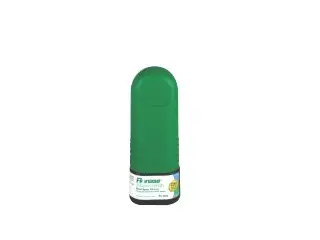Allergy


Discover a wide range of effective allergy relief products designed to reduce symptoms and improve your comfort. Shop antihistamines, nasal sprays, eye drops, and more to manage allergies quickly and confidently. Find trusted brands and safe solutions for seasonal allergies, hay fever, and skin reactions—all available for easy purchase.
Allergy is a common condition affecting millions. It occurs when the immune system reacts to harmless substances. These substances include pollen, dust, pet dander, and molds. Symptoms range from sneezing and runny nose to itchy eyes and skin rashes. For many, controlling allergies means using medication.
Allegra is a popular allergy pill. It contains fexofenadine. This is an antihistamine that blocks histamine receptors. Histamine causes allergy symptoms. Allegra works quickly and lasts all day. It does not usually cause drowsiness. It is effective for hay fever and chronic urticaria (hives). Many users find relief without feeling sleepy.
Aristocort is a corticosteroid used mainly for inflammation. It relieves itching, redness, and swelling caused by allergies. It is often used in skin conditions. Aristocort is applied topically or taken orally. It helps control severe allergic reactions. Users should follow dosage instructions carefully to avoid side effects.
Astelin is a nasal spray containing azelastine. It is an antihistamine spray. Astelin helps reduce nasal congestion, sneezing, and itchy nose. The spray is fast-acting and can be used twice daily. It is suitable for allergic rhinitis, also called hay fever. Patients like it for targeted relief in the nose.
Atarax is hydroxyzine, a first-generation antihistamine. It helps with itching, hives, and anxiety linked to allergies. Atarax can cause drowsiness, so it is often taken at night. It also acts as a mild sedative. Many choose Atarax when allergies interfere with sleep.
Clarinex contains desloratadine. It is a long-acting antihistamine. Clarinex is non-drowsy. It treats nasal and eye allergy symptoms. Users benefit from its once-daily dosing. It is effective for perennial and seasonal allergies. Many prefer Clarinex for day-time symptom control without sedation.
Claritin is another well-known antihistamine with loratadine. It fights allergy symptoms like sneezing, runny nose, and itchy eyes. Claritin is widely used due to its low risk of drowsiness. It provides relief for 24 hours. It works well for mild to moderate allergies.
Flonase nasal spray contains fluticasone propionate. It is a corticosteroid spray. Flonase reduces inflammation inside the nose. It treats nasal congestion, sneezing, and runny nose from allergies. Regular use can improve symptoms significantly. It is safe for long-term use under doctor’s guidance.
Periactin contains cyproheptadine. It is an older antihistamine with sedative properties. Periactin is also used as an appetite stimulant. For allergy sufferers, it reduces itching and hives. It may cause drowsiness, so caution is advised when operating machinery.
Phenergan is promethazine. This antihistamine blocks histamine effects and prevents nausea. Phenergan treats allergic reactions, motion sickness, and nausea. It often causes drowsiness. Patients use Phenergan for severe allergy symptoms needing sedation.
Rhinocort contains budesonide, a corticosteroid nasal spray. It helps reduce nasal inflammation. Rhinocort relieves congestion, sneezing, and runny nose. It is effective for allergic rhinitis. Many find Rhinocort gentle and well-tolerated with consistent use.
Choosing the right allergy medication depends on symptoms and lifestyle. Non-drowsy options like Allegra, Claritin, and Clarinex are good for daytime use. Nasal sprays like Flonase, Astelin, and Rhinocort target nasal symptoms directly. Sedating antihistamines such as Atarax, Phenergan, and Periactin can help with sleep but may impair alertness.
Always consult a healthcare provider before starting any medication. Some allergy drugs may interact with other medicines or have side effects. Proper use and dosage ensure maximum benefit. Allergy medications can improve quality of life by controlling bothersome symptoms.
Most allergy pills begin working within an hour. Relief may last 12 to 24 hours depending on the drug. Using nasal sprays regularly often gives the best control for nasal congestion. Combining antihistamines with nasal corticosteroids can be more effective for severe allergies.
Allergy treatments continue to improve with research. New formulations reduce side effects and increase convenience. Patients should report any unusual reactions to their doctor immediately. Monitoring symptoms helps adjust treatment plans as needed.
Regular use of allergy medicines helps prevent symptom flare-ups. Avoiding known allergens also reduces reliance on medication. Lifestyle changes and cleaning practices complement pharmacological treatment. Together, these steps help manage allergies effectively.
In summary, allergy medications like Allegra, Aristocort, Astelin, Atarax, Clarinex, Claritin, Flonase nasal spray, Periactin, Phenergan, and Rhinocort offer various treatment options. Each has advantages depending on allergy type and patient needs. Proper selection and usage lead to better control and comfort.







